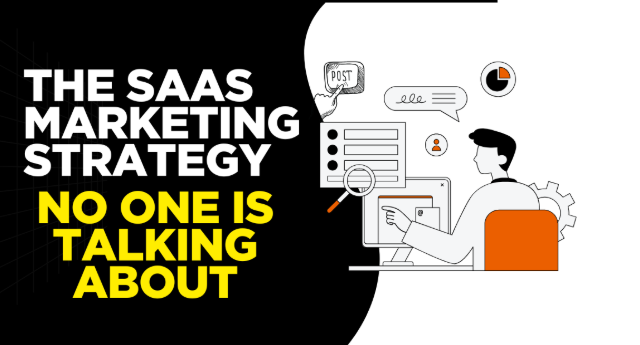Case Study: How We Achieved 4.2x ROAS for a VC-Backed E-Commerce Brand
- eyal297
- May 6
- 4 min read
Updated: Jun 26

In the crowded e-commerce landscape, achieving consistent and high returns on ad spend (ROAS) is no small feat. This ecommerce performance marketing case study reveals how we helped a VC-backed ecommerce brand scale profitably using a data-driven, full-funnel approach. The result? A 4.2x ROAS. This is more than just an ecommerce digital ad success story—it's a blueprint for building a high ROAS ecommerce strategy that converts.
We combined granular targeting, continuous creative testing, platform-specific optimization, and retention loops to ensure every marketing dollar drove maximum value. Unlike one-size-fits-all tactics, this approach was tailored, structured, and built to scale—proving that with the right system in place, even aggressive growth goals are within reach.
The Challenge: Scaling a VC-Backed Ecommerce Brand
The client was a VC-backed ecommerce startup selling high-end wellness products directly to consumers. Despite healthy funding, their customer acquisition cost (CAC) was climbing rapidly while ROAS deteriorated. They needed a sustainable and scalable advertising engine. This ecommerce performance marketing case study captures our journey to implement a conversion-optimized ad campaign that would perform across channels and lift revenue.
Step 1: Precision Targeting and Media Buying for DTC
We began with an audience audit and layered targeting strategy. Through smart media buying for DTC brands, we:
Created granular buyer personas using first-party data
Built segmented and lookalike audiences
Prioritized high-LTV behaviours in prospecting.
Diversifying ad spend across Meta, Google, and TikTok stabilised CPAs. This cross-channel media buying for DTC strategy played a pivotal role in our ROAS improvement strategy.
Step 2: A/B Testing and Conversion-Optimized Ad Campaigns.
Creative testing was critical. We launched over 150 variations featuring:
UGC and product-in-action videos
Split-tested CTAs and headlines
Design iterations for specific funnel stages.
The outcome? A spike in CTR and purchase conversion. Our conversion-optimized ad campaigns boosted ROAS while reducing CAC—a key success factor in this ecommerce performance marketing case study.
We also built fast, mobile-friendly landing pages tailored to campaign objectives. These pages consistently supported our high-performing funnels and enriched our high ROAS ecommerce strategy.
Step 3: Executing the ROAS Improvement Strategy
We aligned TOFU, MOFU, and BOFU efforts to enhance campaign performance:
TOFU: Educational videos and quizzes
MOFU: Comparison guides and social proof
BOFU: Scarcity-based CTAs and testimonials
We used advanced retargeting via product views, cart abandoners, and video engagement. This ROAS improvement strategy minimised waste and elevated lead quality—another cornerstone of our campaign optimization case study.
Frequent creative refreshes helped us avoid ad fatigue and sustain relevance—boosting longevity for even the best conversion-optimized ad campaigns.
Step 4: Ecommerce Ad Scaling with Control
To scale efficiently, we applied:
Manual bidding on top segments
Budget caps and dayparting strategies
Platform-specific scaling rules
Our approach to ecommerce ad scaling ensured we preserved ROAS while increasing ad spend. Maintaining a 4.2x return for 8+ weeks was not luck—it was structured execution, as this ecommerce digital ad success story proves.
We didn’t just scale vertically—we scaled smart. New audiences, hooks, and creative wrappers gave our VC-backed ecommerce client long-term sustainability.
Post-Campaign Optimization and Lifecycle Management
A campaign doesn't end with a conversion. We ran lifecycle audits every 10 days. They checked:
Ad fatigue levels
Funnel drop-off points
Creative relevance decay
Refreshing content proactively allowed our conversion-optimized ad campaigns to stay sharp. Campaign extensions with new value props helped stretch performance during seasonal pushes and flash sales—an underrated tactic in any high ROAS ecommerce strategy.
First-Party Data Integration and Retention Uplift
Through TOFU lead gen efforts, we collected 22,000+ emails. These were used for:
Retargeting
Email/SMS flows
Custom audience enrichment
This enhanced our media buying for DTC campaigns and pushed ROAS even higher—0.6x higher on enriched audiences. This illustrates how critical owned data is in any ecommerce performance marketing case study.
Performance Timeline Snapshot
Here’s how our ecommerce ad scaling unfolded:
Week 1–2: Segmenting and initial testing
Week 3: First 2.7x ROAS hit
Week 4: Controlled scaling
Week 5–6: ROAS stabilized at 4.2x
Week 7–8: Funnel offers and retention flows added
This timeline reflects a textbook campaign optimization case study—quick, measurable progress with structured decisions.
Results Snapshot
This wasn’t just an average ecommerce digital ad success story—the metrics back it:
4.2x average ROAS
230% increase in new customers
48% lower CAC
14% higher CLV
24% boost in AOV
Each outcome links directly to our high ROAS ecommerce strategy and methodical execution.
Conclusion
This ecommerce performance marketing case study proves that even a VC-backed ecommerce brand can struggle—unless they apply a full-funnel, scalable, data-led system.
Embrace audience testing
Apply layered media buying for DTC
Use a ROAS-first approach to creative and budget scaling
Reinvest based on performance, not assumptions
The takeaway? A high ROAS ecommerce strategy doesn’t rely on trends. It’s powered by clarity, control, and iteration.
Sustainable ROAS isn't about short-term wins—it’s about building a marketing infrastructure that evolves. Brands willing to test relentlessly, refine with data, and scale thoughtfully will outlast competitors chasing hacks. If your goal is long-term growth, this playbook offers a proven path forward—built from real results, not theory.
FAQs
1. What is a high ROAS ecommerce strategy?
A methodical, test-driven system built to maximize return on ad spend across all funnel stages.
2. Why is this an ecommerce performance marketing case study worth studying?
It offers a repeatable model for achieving 4.2x ROAS through strategic testing, targeting, and funnel management.
3. What are conversion-optimized ad campaigns?
Campaigns that pair intent-driven creative with high-performing landing pages to increase purchase efficiency.
4. How does ecommerce ad scaling work without hurting ROAS?
By scaling in stages, monitoring segment performance, and avoiding creative burnout.
5. Why should VC-backed ecommerce brands avoid generic ad strategies?
Because performance demands personalization, this campaign optimization case study shows how data-driven precision wins.




Comments